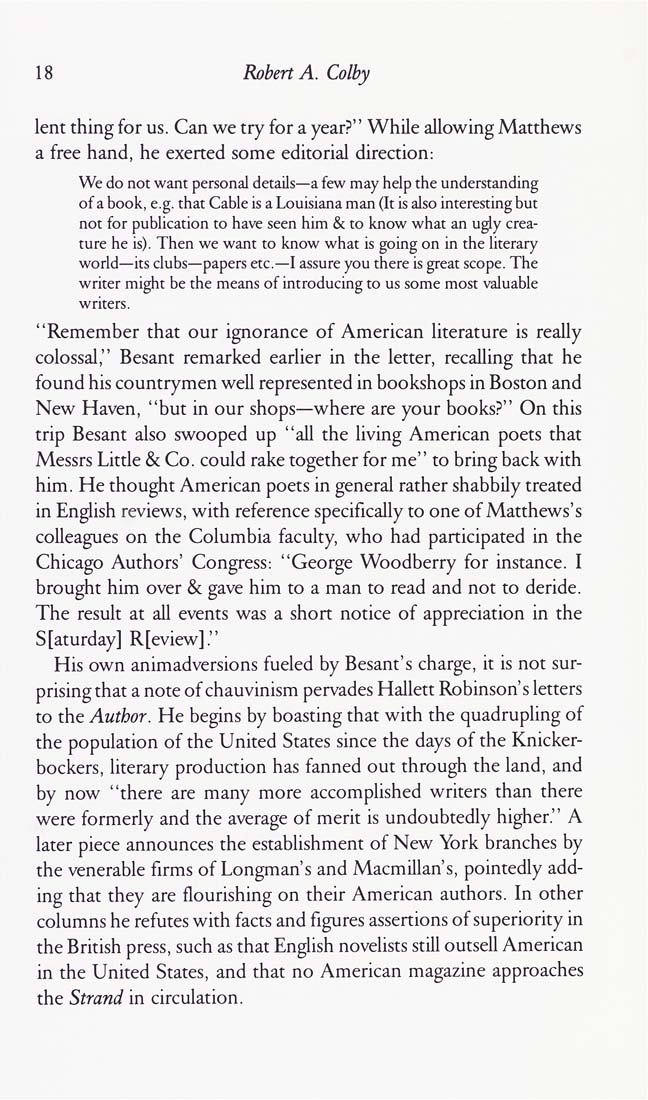Columbia Library columns (v.41(1991Nov-1992May))
(New York : Friends of the Columbia Libraries. )
|
||
|
|
|
|
| v.41,no.1(1991:Nov): Page 18 |

18 Robert A. Colby lent thing for us. Can we try for a year?'' While allowing Matthews a free hand, he exerted some editorial direction: We do not want personal details—a few may help the understanding of a book, e.g. that Cable is a Louisiana man (It is also interesting but not for publication to have seen him & to know what an u^y crea¬ ture he is). Then we want to know what is going on in the literary world—its clubs—papers etc.—I assure you there is great scope. The writer might be the means of introducing to us some most valuable writers. "Remember that our ignorance of American literature is really colossal," Besant remarked earlier in the letter, recalling that he found his countrymen well represented in bookshops in Boston and New Haven, "but in our shops—where are your books?" On this trip Besant also swooped up "all the living American poets that Messrs Little & Co. could rake together for me" to bring back with him. He thought American poets in general rather shabbily treated in English reviews, with reference specifically to one of Matthews's colleagues on the Columbia faculty, who had participated in the Chicago Authors' Congress: "George Woodberry for instance. I brought him over & gave him to a man to read and not to deride. The result at all events was a short notice of appreciation in the S[aturday] R[eview]." His own animadversions fueled by Besant's charge, it is not sur¬ prising that a note of chauvinism pervades Hallett Robinson's letters to the Author. He begins by boasting that with the quadrupling of the population of the United States since the days of the Knicker¬ bockers, literary production has fanned out through the land, and by now "there are many more accomplished writers than there were formerly and the average of merit is undoubtedly higher." A later piece announces the establishment of New York branches by the venerable firms of Longman's and Macmillan's, pointedly add¬ ing that they are flourishing on their American authors. In other columns he refutes with facts and figures assertions of superiority in the British press, such as that English novelists still outsell American in the United States, and that no American magazine approaches the Strand in circulation. |
| v.41,no.1(1991:Nov): Page 18 |







